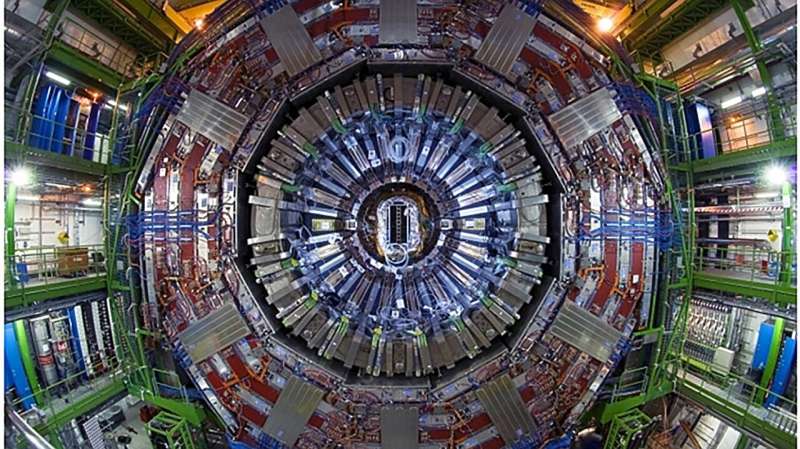Science
Physicists Gather at Brown University to Explore Higgs Boson Mysteries

On October 30, 2025, physicists from around the world convened at Brown University for the annual Higgs Conference, focusing on unresolved questions regarding the Higgs boson. This gathering marked the first time Brown hosted the event, which has become a prestigious platform for discussing developments in particle physics since the Higgs boson’s discovery in 2012 at the Large Hadron Collider (LHC).
Significance of the Higgs Boson
The Higgs boson, a particle associated with the Higgs field, plays a critical role in explaining how elementary particles acquire mass. The discovery of this elusive particle was a significant milestone in the field of particle physics, culminating in the 2013 Nobel Prize in Physics awarded for its theoretical prediction and experimental confirmation. Among those key contributors were researchers from Brown, including David Cutts, Ulrich Heintz, Greg Landsberg, and the late Meenakshi Narain, who were instrumental in the Compact Muon Solenoid (CMS) experiment.
Despite its discovery, many fundamental questions remain. Loukas Gouskos, an assistant professor at Brown, emphasized that finding the Higgs boson was only the beginning. “We want to understand how strongly it interacts with other particles and itself,” he noted. “Any deviation from the Standard Model could indicate new particles or forces.” Scientists continue to explore these interactions, which are vital for answering profound questions about the universe, including the dominance of matter over antimatter and the nature of dark matter.
Exploring Future Frontiers
This year’s conference attracted approximately 130 participants, including leading physicists and early-career researchers. Attendees engaged in discussions about current research findings from the LHC and future experimental directions. A major focus was on the necessary “tools for precision,” which encompass advanced detectors and analysis methods, including artificial intelligence techniques that enhance data interpretation.
Looking ahead, the conference addressed plans for the LHC’s next phase, which aims to operate at higher intensity, as well as discussions surrounding the development of a new multi-billion-dollar collider. Gouskos expressed his hopes for the conference’s impact on Brown, stating, “I believe this will spark interest in other disciplines such as engineering and computer science, highlighting the interdisciplinary connections that exist.” The event serves as a valuable opportunity for students to network with established scientists and understand the significance of their work in the broader context of scientific inquiry.
Overall, the Higgs Conference at Brown University is a testament to the ongoing quest for knowledge in particle physics, addressing not only the achievements of the past but also the exciting challenges that lie ahead.
-

 Top Stories1 week ago
Top Stories1 week agoMarc Buoniconti’s Legacy: 40 Years Later, Lives Transformed
-

 Sports3 weeks ago
Sports3 weeks agoSteve Kerr Supports Jonathan Kuminga After Ejection in Preseason Game
-

 Politics3 weeks ago
Politics3 weeks agoDallin H. Oaks Assumes Leadership of Latter-day Saints Church
-

 Business3 weeks ago
Business3 weeks agoTyler Technologies Set to Reveal Q3 2025 Earnings on October 22
-

 Science3 weeks ago
Science3 weeks agoChicago’s Viral ‘Rat Hole’ Likely Created by Squirrel, Study Reveals
-

 Entertainment3 weeks ago
Entertainment3 weeks agoZoe Saldana Advocates for James Cameron’s Avatar Documentary
-

 Lifestyle3 weeks ago
Lifestyle3 weeks agoKelsea Ballerini Launches ‘Burn the Baggage’ Candle with Ranger Station
-

 Lifestyle3 weeks ago
Lifestyle3 weeks agoDua Lipa Celebrates Passing GCSE Spanish During World Tour
-

 Health3 weeks ago
Health3 weeks agoRichard Feldman Urges Ban on Menthol in Cigarettes and Vapes
-

 Health3 weeks ago
Health3 weeks agoCommunity Unites for Seventh Annual Mental Health Awareness Walk
-

 World3 weeks ago
World3 weeks agoD’Angelo, Iconic R&B Singer, Dies at 51 After Cancer Battle
-

 Sports3 weeks ago
Sports3 weeks agoPatriots Dominate Picks as Raiders Fall in Season Opener









